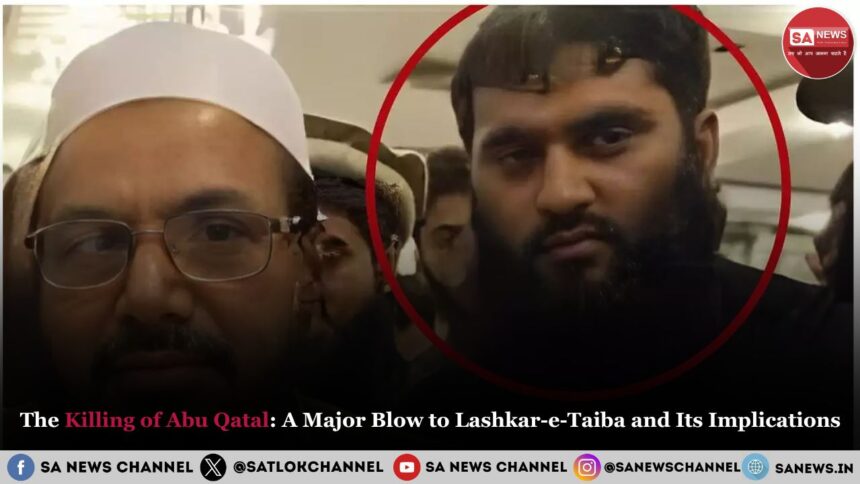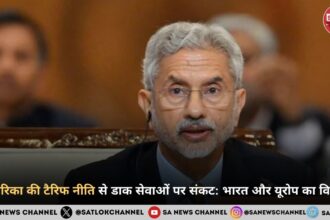The reported killing of Abu Qatal, a top commander of the Lashkar-e-Taiba (LeT), by unidentified assailants in Jhelum, Pakistan, has sent shockwaves through the region. Known for his close ties to Hafiz Saeed, the founder of LeT and mastermind behind several terror attacks, Abu Qatal was a key figure in orchestrating numerous operations, especially in Jammu and Kashmir.
His death marks a significant development in the fight against terrorism, raising questions about the future of LeT and the broader implications for regional security.
Who Was Abu Qatal?
Abu Qatal was one of the most prominent commanders of Lashkar-e-Taiba, a globally recognized terrorist organization. He was deeply involved in planning and executing terror attacks, particularly in Jammu and Kashmir. His name was linked to some of the most devastating attacks in recent years, including the 2023 Rajouri attack and the 2024 Reasi bus attack, which claimed many lives and left communities in mourning.
Qatal’s operational expertise and leadership made him a high-value target for counter-terrorism efforts. His death is not just a symbolic victory but also a strategic blow to LeT’s capabilities.
How Did the Killing Happen?
According to reports, Abu Qatal was ambushed near Zeenat Hotel in the Jhelum area of Pakistan. Gunmen targeted his convoy, leading to his immediate death along with one of his guards. The attack has been described as a “targeted killing,” though the exact details remain unclear.
■ Also Read: Amit Shah Behind Intelligence Operations Targeting Nijjar Killing, Canadian Officials Confirmed
Some experts believe the killing could be the result of infighting within LeT’s ranks, while others speculate it might have been carried out by rival factions. This incident has also raised questions about Pakistan’s role in countering terrorism, given the long-standing accusations of state complicity or tolerance toward groups like LeT.
What Does This Mean for Lashkar-e-Taiba?
The death of Abu Qatal is a significant setback for Lashkar-e-Taiba. As a key operational leader, his absence could disrupt the group’s ability to plan and execute attacks. However, it remains to be seen whether LeT will regroup under new leadership or if this marks the beginning of a decline for the organization.
The killing also highlights the volatile and fragmented nature of terrorist groups operating in the region. Internal rivalries and betrayals could be weakening their structures, making them more vulnerable to external pressures.
Implications for Pakistan
For Pakistan, the killing of Abu Qatal adds another layer of complexity to its ongoing struggle against terrorism. While the country has faced international pressure to crack down on groups like LeT, incidents like these underscore the challenges it faces in controlling extremist elements within its borders.
The attack raises important questions about Pakistan’s ability to manage or dismantle terrorist networks. It also highlights the need for stronger measures to address the root causes of extremism and ensure long-term stability.
Regional Implications
The death of Abu Qatal has broader implications for the region, particularly for India. As a key adversary responsible for orchestrating violence in Jammu and Kashmir, his neutralization is a significant victory for India’s counter-terrorism efforts. However, it is too early to say whether this will lead to a decline in LeT’s activities or if the group will adapt and continue its operations.
This incident also underscores the importance of regional cooperation in combating terrorism. Countries in the region must work together to address the shared threat posed by extremist groups and ensure peace and stability.
The Bigger Picture: Counter-Terrorism and Peace
The killing of Abu Qatal is a pivotal moment in the fight against terrorism. It sheds light on the evolving dynamics within extremist organizations and highlights the need for continued vigilance and collaboration among nations.
While his death is a blow to Lashkar-e-Taiba, it also serves as a reminder that terrorism remains a persistent threat. Addressing this challenge requires not just military action but also efforts to tackle the root causes of extremism, such as poverty, lack of education, and political instability.
Conclusion
The killing of Abu Qatal is a significant development in the fight against terrorism. It represents a major setback for Lashkar-e-Taiba and raises important questions about the future of the group and the broader implications for regional security.
For Pakistan, this incident highlights the challenges of managing extremist elements within its borders. For India, it marks the neutralization of a key adversary responsible for violence in Jammu and Kashmir.
Sant Rampal Ji Maharaj emphasizes the importance of true spiritual knowledge (Satgyan) to break free from the cycle of birth and death. His teachings highlight that worldly conflicts, including terrorism, stem from ignorance of the Supreme Power and lack of true devotion.
According to him, only by following the path of Satbhakti (true worship) under the guidance of a true Guru can individuals and societies achieve peace and harmony. He advocates for the chanting of “Satnaam” and “Saarnaam,” which purify the soul and lead to salvation. His philosophy underscores that spiritual awakening is key to resolving global issues like violence and unrest.









